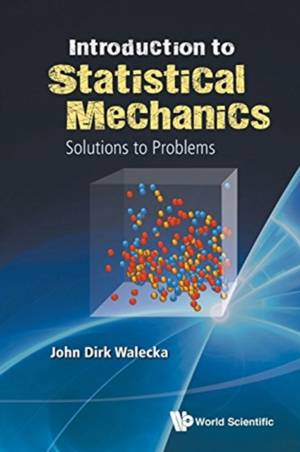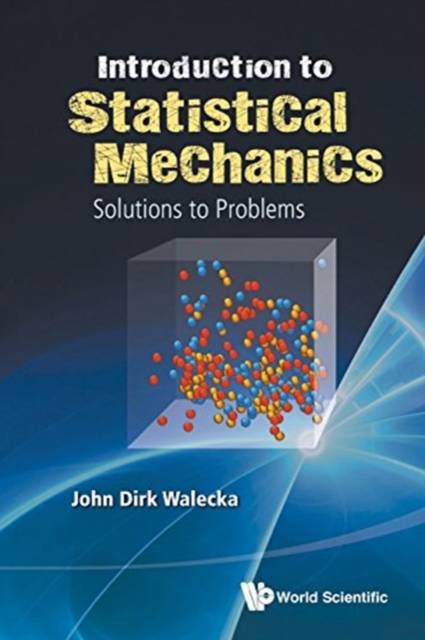
- Retrait gratuit dans votre magasin Club
- 7.000.000 titres dans notre catalogue
- Payer en toute sécurité
- Toujours un magasin près de chez vous
- Retrait gratuit dans votre magasin Club
- 7.000.000 titres dans notre catalogue
- Payer en toute sécurité
- Toujours un magasin près de chez vous
Description
Statistical mechanics is concerned with defining the thermodynamic properties of a macroscopic sample in terms of the properties of the microscopic systems of which it is composed. The previous book Introduction to Statistical Mechanics provided a clear, logical, and self-contained treatment of equilibrium statistical mechanics starting from Boltzmann's two statistical assumptions, and presented a wide variety of applications to diverse physical assemblies. An appendix provided an introduction to non-equilibrium statistical mechanics through the Boltzmann equation and its extensions. The coverage in that book was enhanced and extended through the inclusion of many accessible problems. The current book provides solutions to those problems. These texts assume only introductory courses in classical and quantum mechanics, as well as familiarity with multi-variable calculus and the essentials of complex analysis. Some knowledge of thermodynamics is also assumed, although the analysis starts with an appropriate review of that topic. The targeted audience is first-year graduate students and advanced undergraduates, in physics, chemistry, and the related physical sciences. The goal of these texts is to help the reader obtain a clear working knowledge of the very useful and powerful methods of equilibrium statistical mechanics and to enhance the understanding and appreciation of the more advanced texts.
Spécifications
Parties prenantes
- Auteur(s) :
- Editeur:
Contenu
- Nombre de pages :
- 244
- Langue:
- Anglais
Caractéristiques
- EAN:
- 9789813148130
- Date de parution :
- 04-09-16
- Format:
- Livre broché
- Format numérique:
- Trade paperback (VS)
- Dimensions :
- 150 mm x 226 mm
- Poids :
- 453 g







